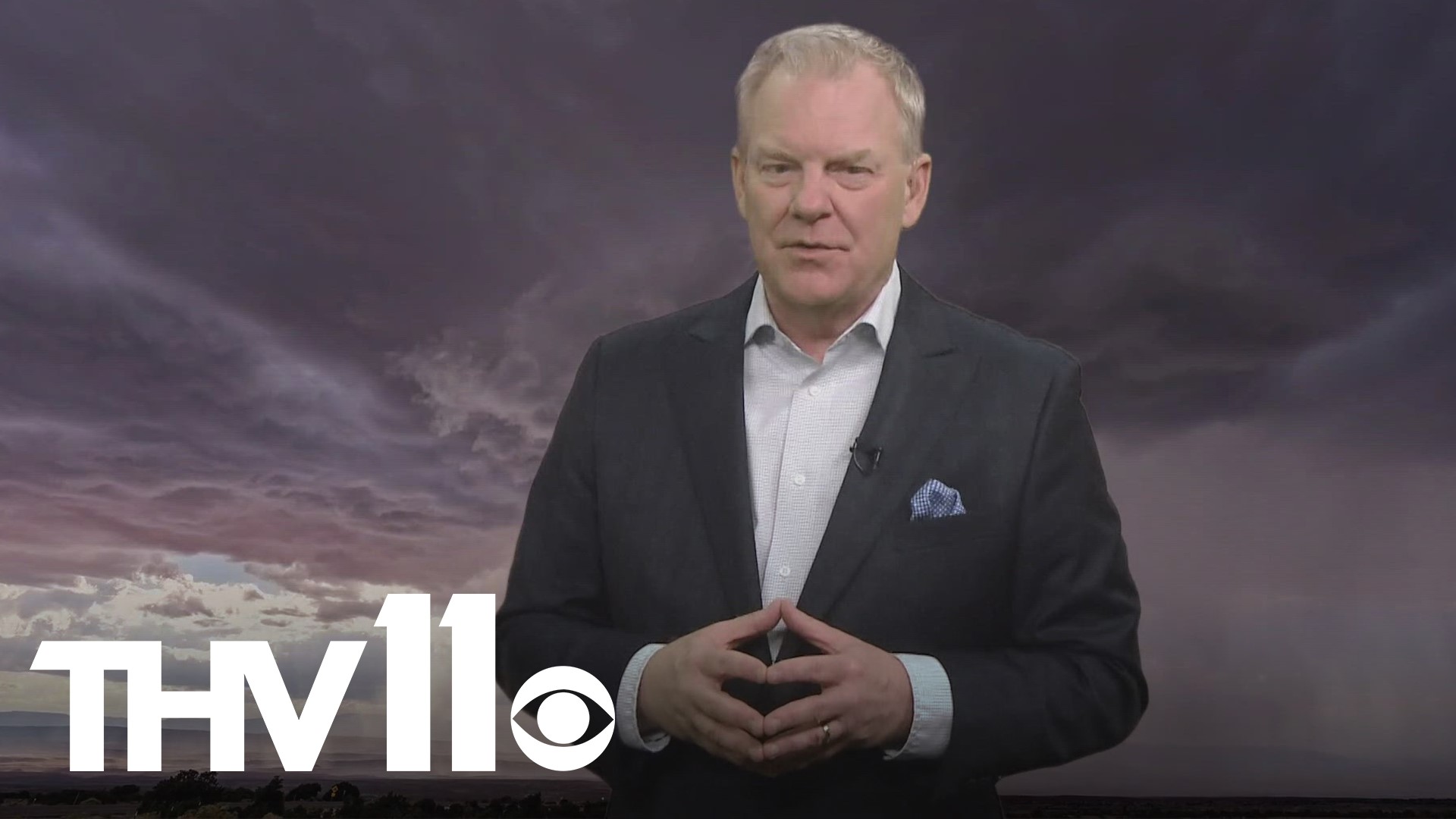LITTLE ROCK, Ark. — Spring arrives on March 19th this year, bringing about warmer temperatures, pretty blooms, pollen, and yes — severe weather.
In Arkansas, the months of March, April, and May are what we consider to be “severe weather season.” With that in mind, it’s always our goal to make sure you’re prepared before those storms hit.
First, it’s important to know and understand the differences between weather watches and warnings whenever they’re issued for your area.
A “watch” indicates that there are ingredients in the atmosphere that could cause severe weather to develop where you live. This typically applies to a larger area and can last several hours.
A "warning" on the other hand means that severe weather is actively happening or is imminent. With that in mind, it tends to cover a smaller area and lasts a shorter amount of time compared to a watch. The ones we most often experience in our state are severe thunderstorm warnings and tornado warnings.
So, when it comes to severe weather, what could Arkansas's spring look like this year?
El Niño has already brought above average rain this winter, but what about the next few months?
The past few years we felt the impacts of La Niña, which historically brings more tornados to the Natural State.
However, with El Niño expected to continue through mid-Spring for this year, our odds favor a lower than average tornado count, which currently sits at 37 per year in Arkansas.
It's also important to note that while the count could be lower than average, El Niño has produced strong tornados of EF3 or greater in the past, so it's important to remain weather aware.
If you live in Arkansas, it's a fair bet that you have a "safe place" in your home in the event of severe weather. It's important to think about your safe space ahead of severe weather season.
Your best option is a FEMA certified storm shelter, while basements are the second best option.
There are alternatives however, if you don't have either of those — remember these tips.
As an alternative you can go to an interior room on the lowest floor of your home and be sure to avoid all windows. It's important that you try to put as many walls as possible between you and outside.
In the event that you're in a vehicle or mobile home when a storm hits -- seek shelter in a sturdy building, like your local saferoom.
In any situation, it's important to keep certain things handy, like an object to use to cover your head — such as a pillow or bike helmet.
Other things you should remember to bring include an emergency kit, bottled water, non-perishable foods, flashlights, batteries, and extra phone chargers. It's also important that you don't forget first aid supplies, medications, and any important documents.
Lastly, keep your shoes nearby.
Tornado sirens are used in different ways and vary by community. With that in mind, they can be a pivotal tool in alerting areas about a potential threat of severe weather, but how did they originate?
Well, they came to be after World War II when civil defense officials repurposed air-raid sirens.
At the time — they were intended to alert people working outdoors of impending danger and never meant to be heard indoors, much less when you're asleep.
While they're still used today, it's important to understand that there's no standard for when these sirens are used.
For instance, one local government may sound their sirens for an unconfirmed tornado sighting, while neighboring areas only use them when an official warning is issued.
Some siren systems are all-or-nothing, meaning that they may sound for a storm that won't hit part of the county where you live.
While there's no doubt tornado sirens play an important role in the warning dissemination process, you shouldn't rely solely on them.
When the National Weather Service issues watches and warnings, it's encouraged to have multiple ways to receive severe weather information.
Make sure to download the THV11 app, or text the word "CALL" to 501-376-1111 to learn more about weather.

